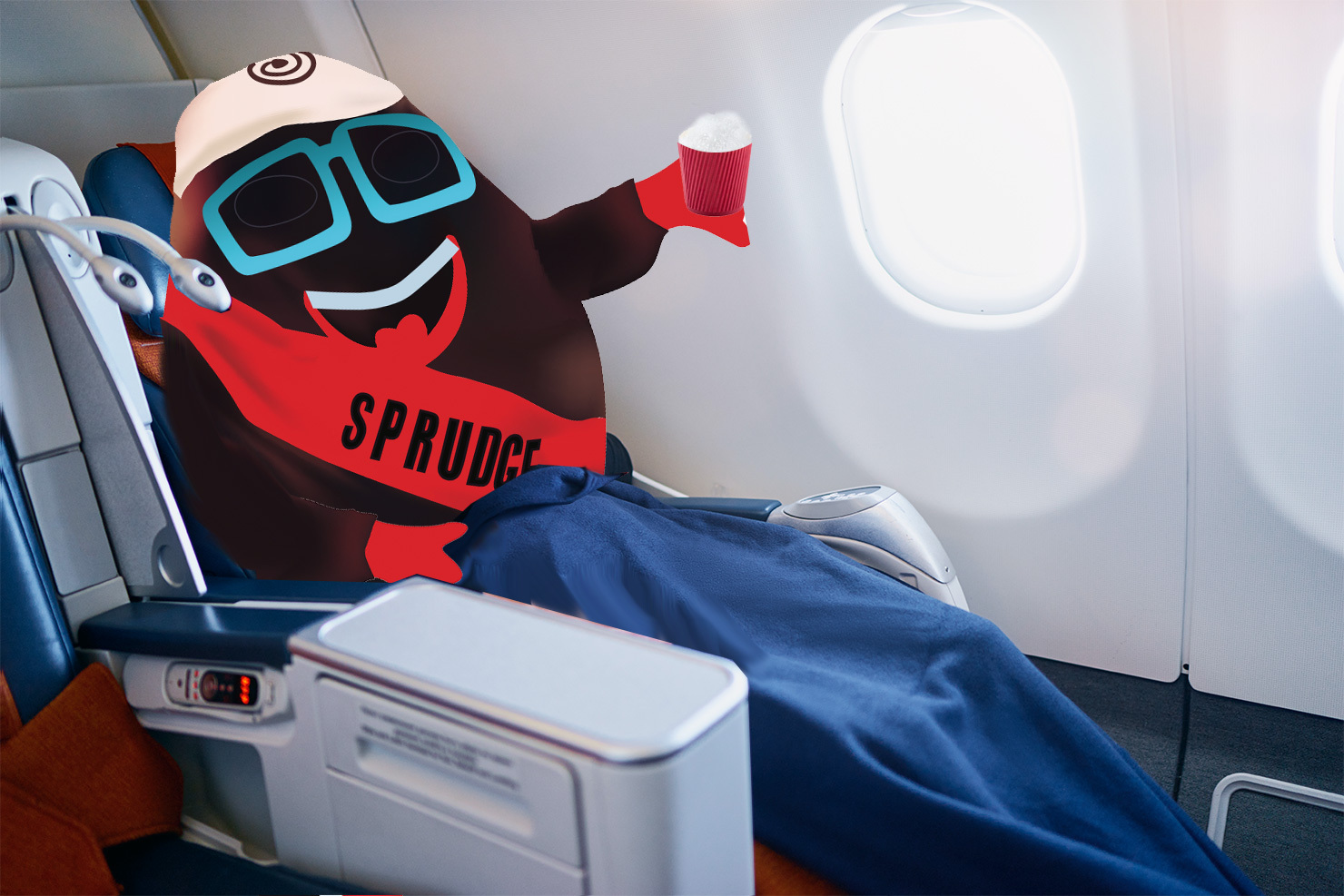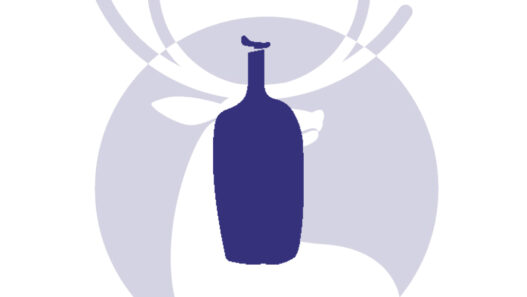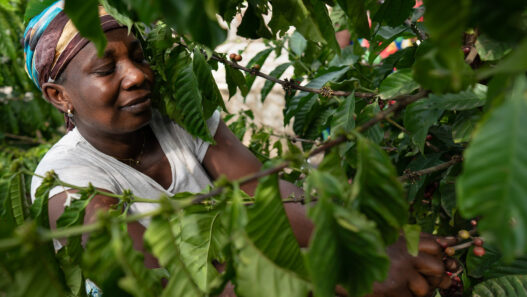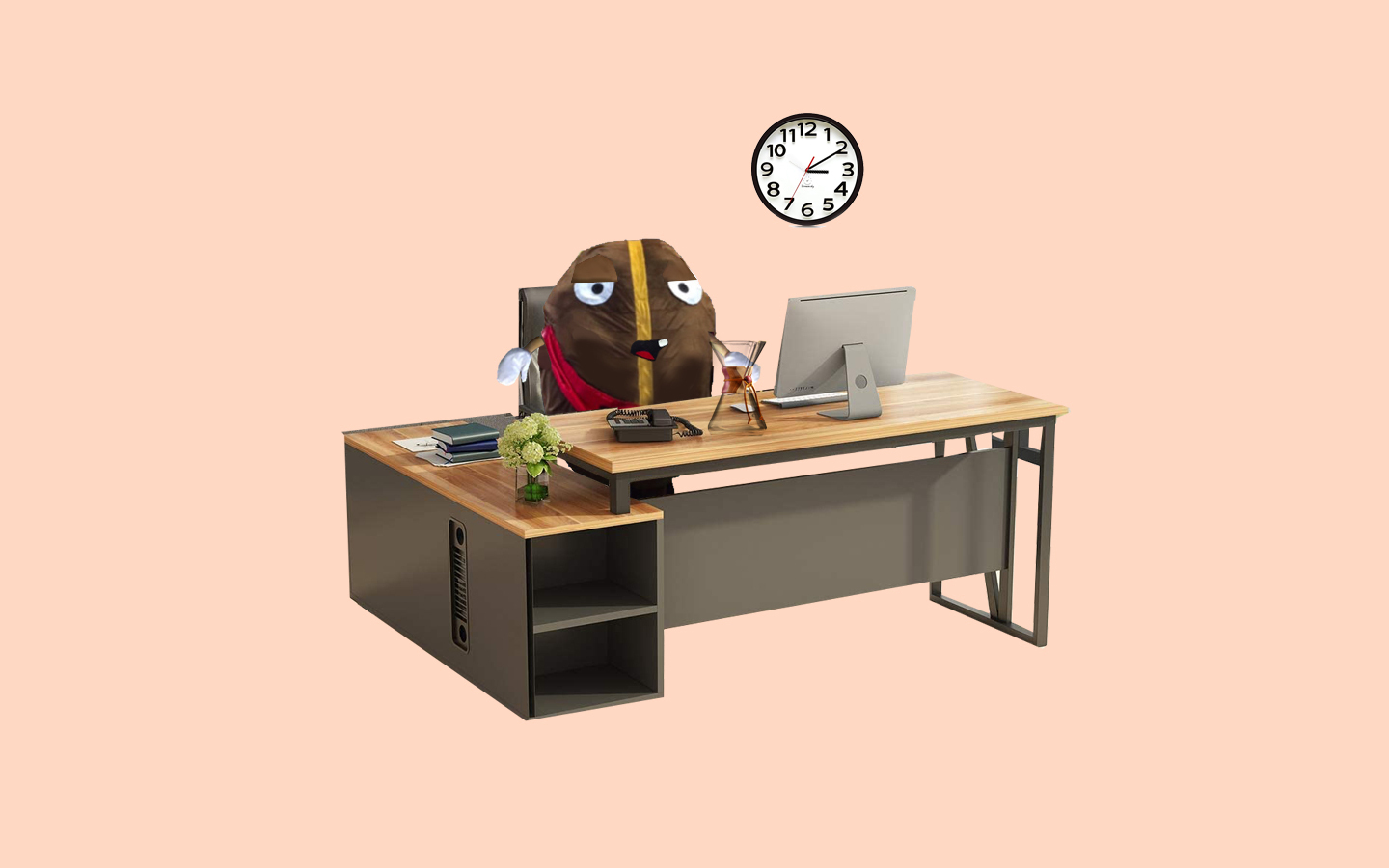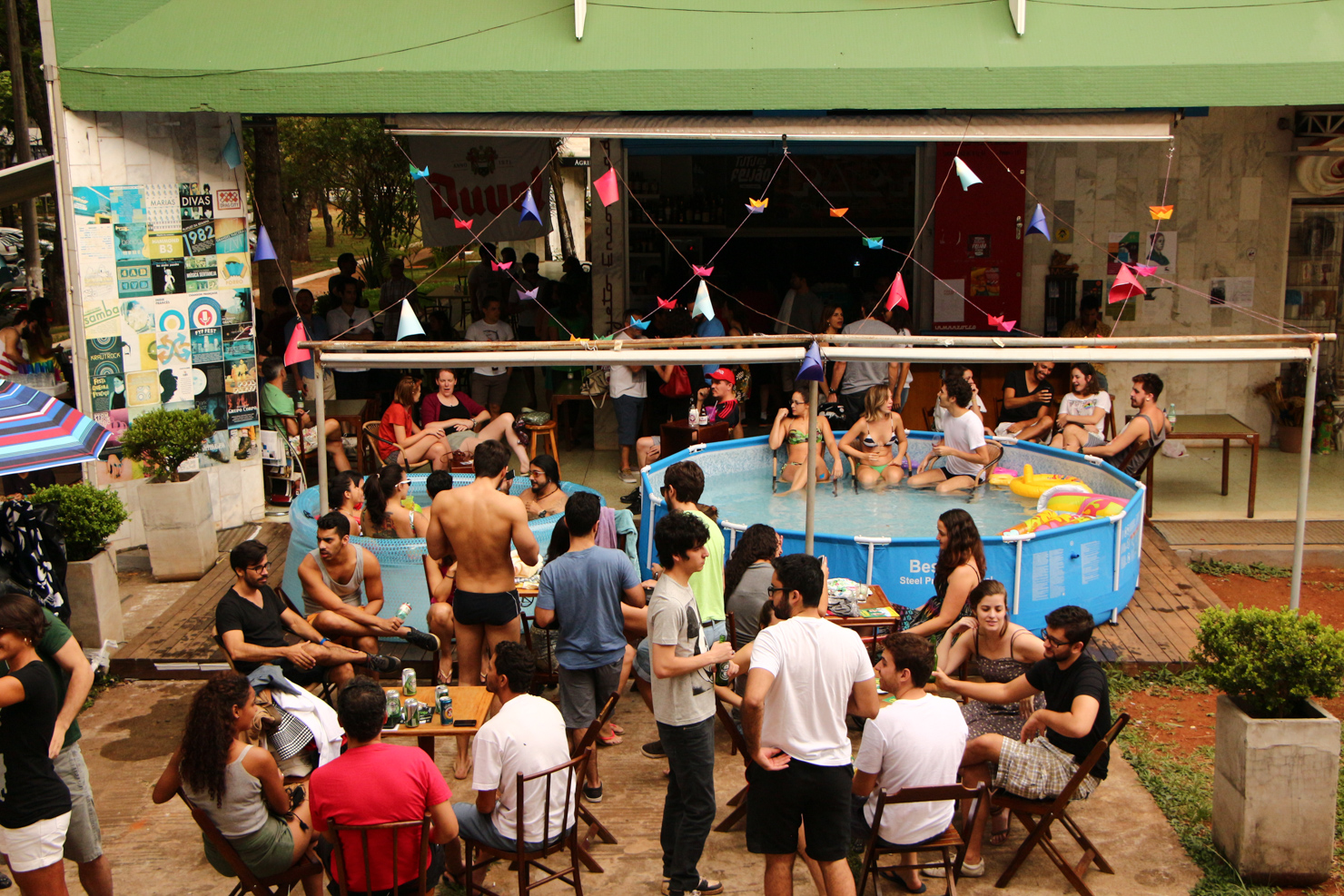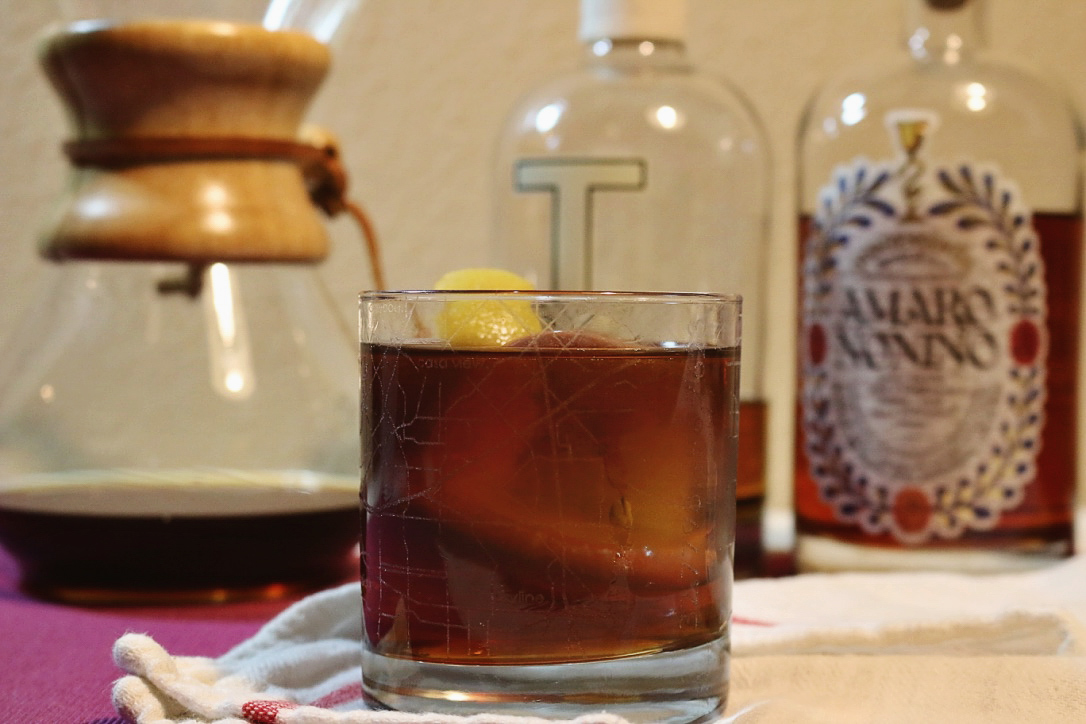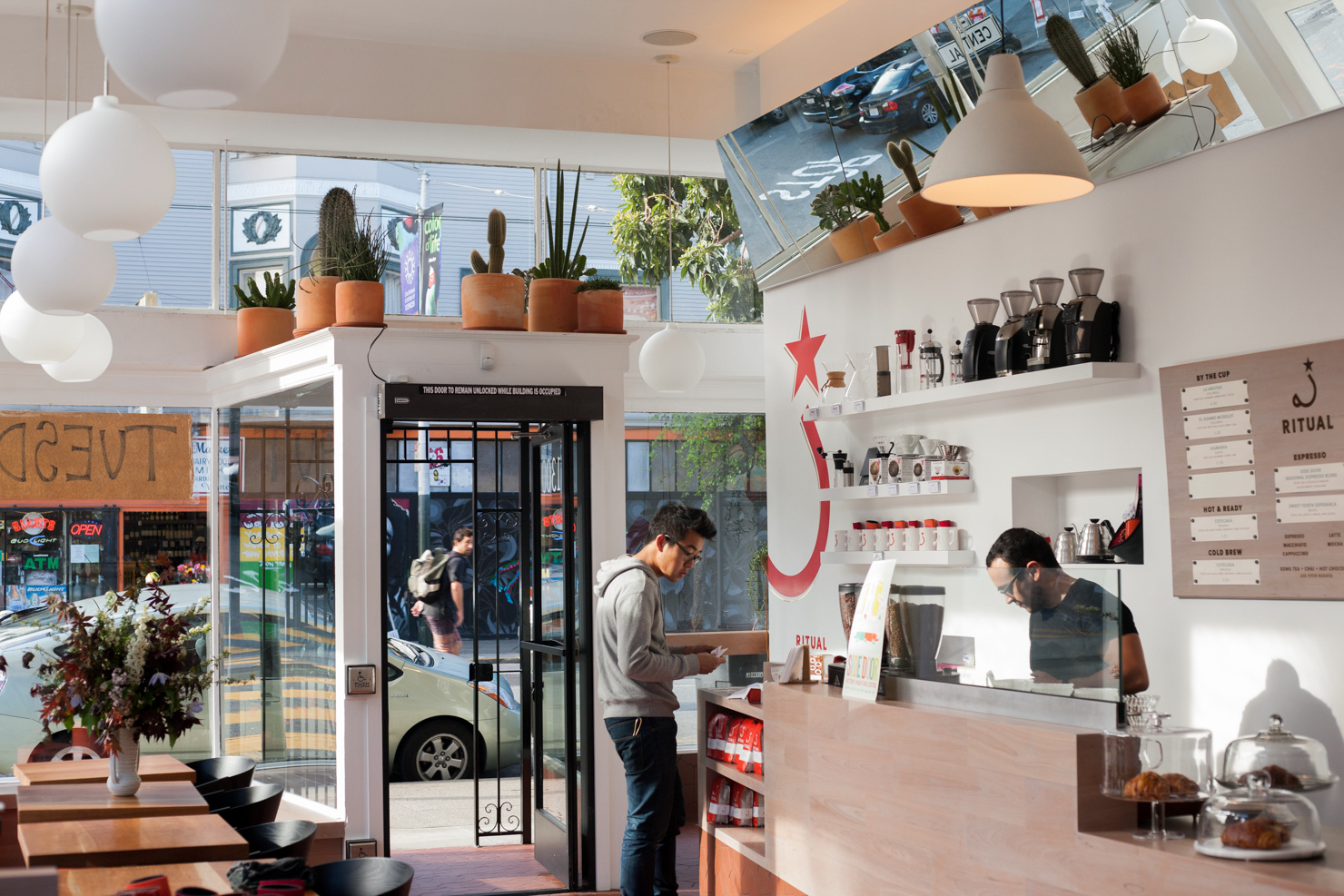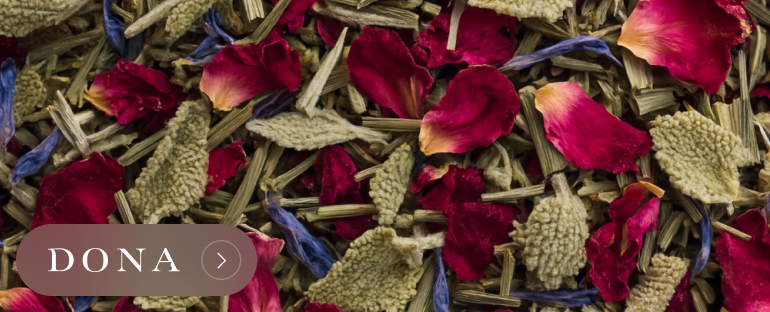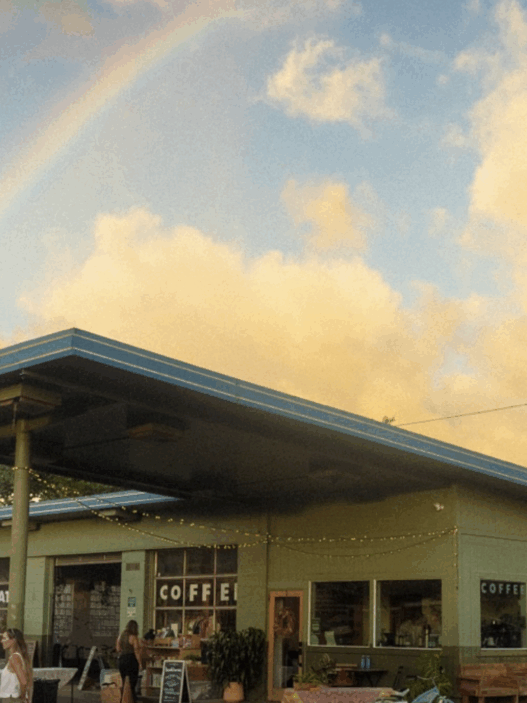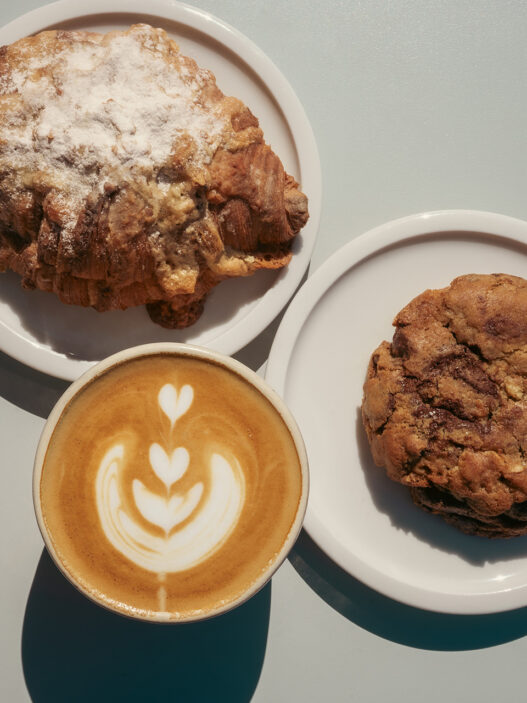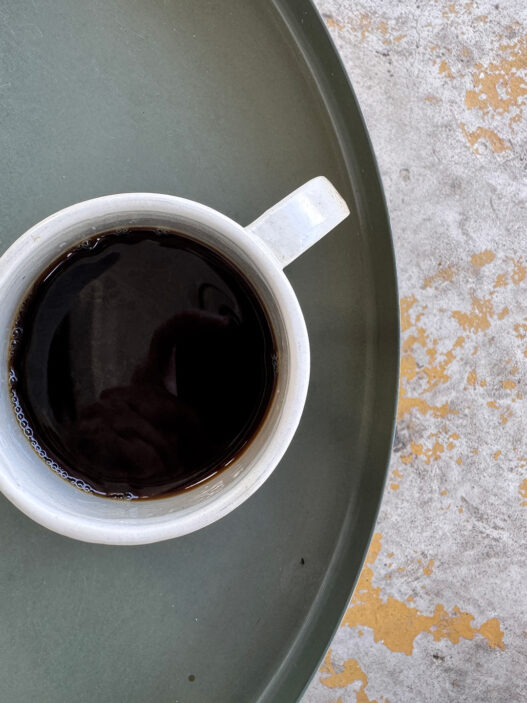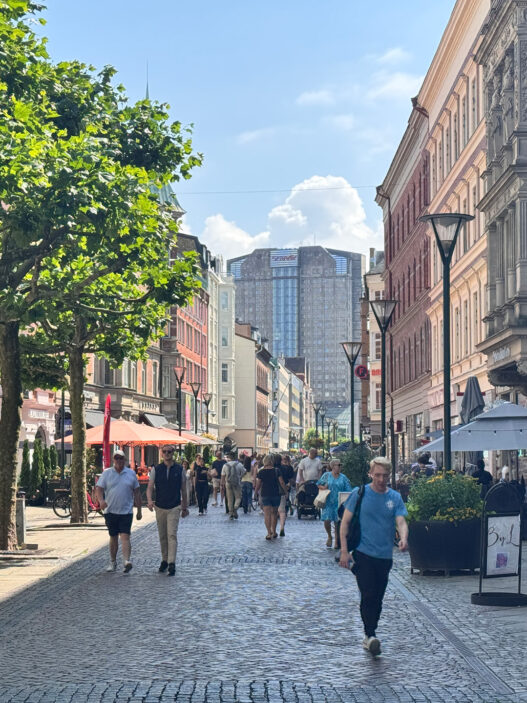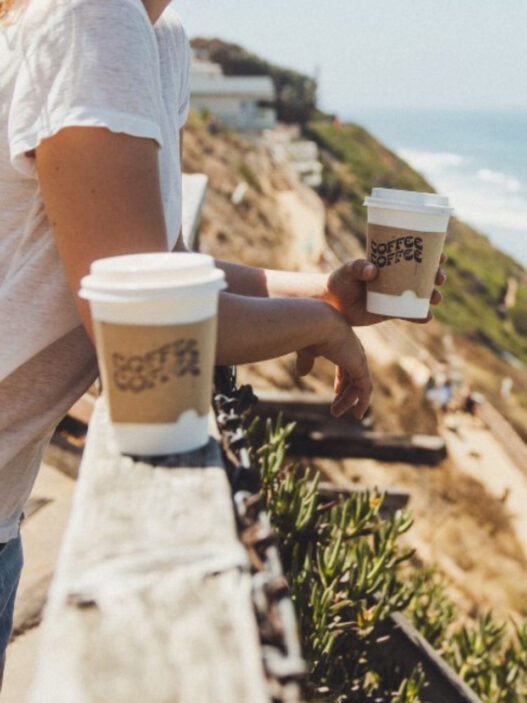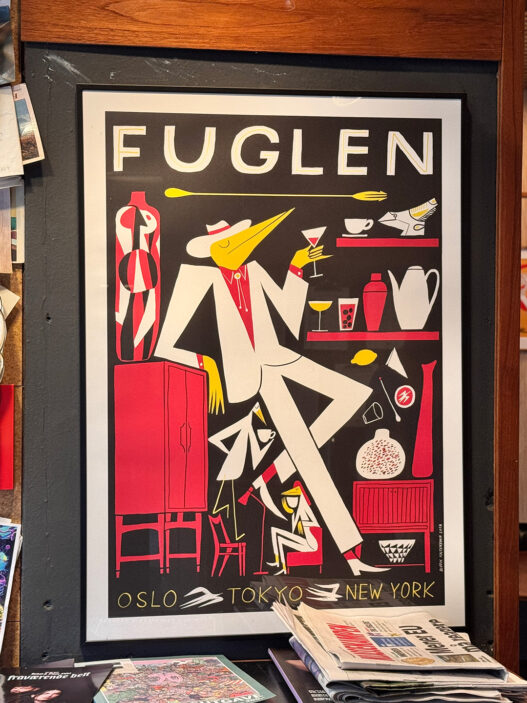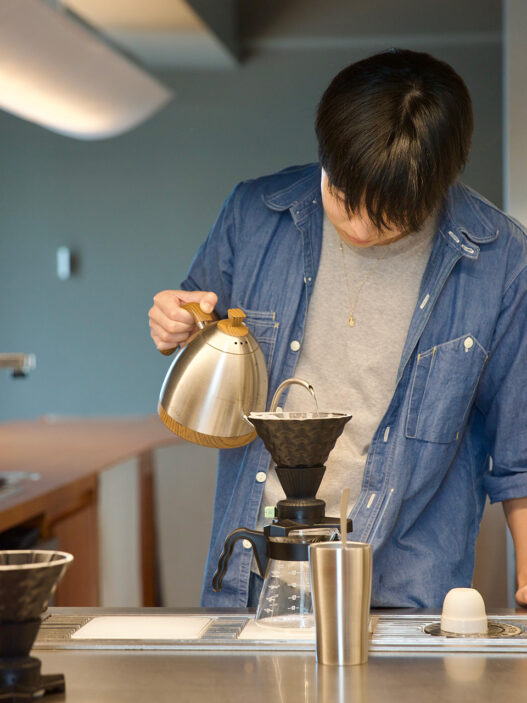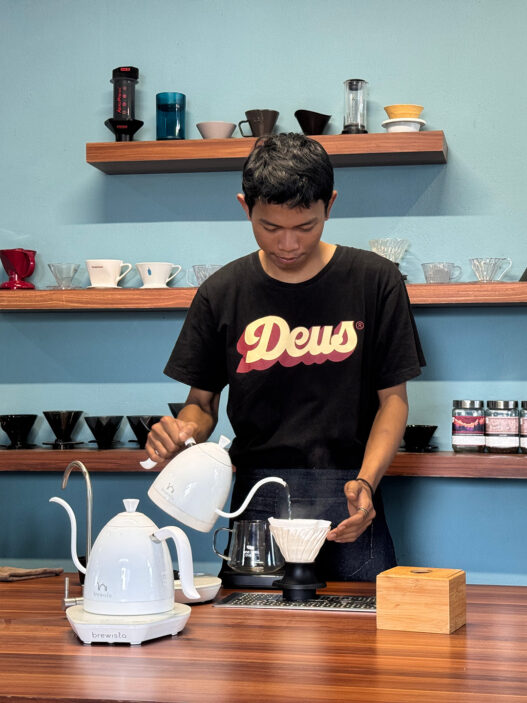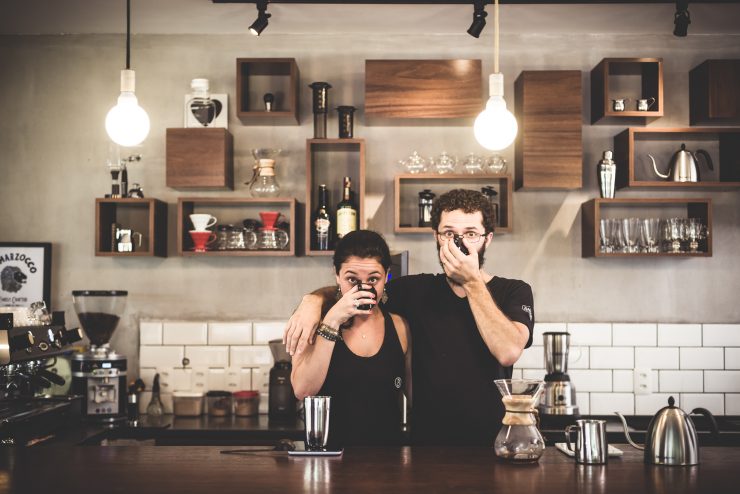
“There is no other place like Brasília,” Oscar Niemeyer, the architect who designed all of the capital’s prominent buildings, once said. Built from scratch on an unoccupied plateau in the interior of Brazil, the Unesco World Heritage center was inaugurated in 1960 in an attempt to further develop the midwest region of the country.
It does not feel like a city, some say. There are planned green areas and bike lanes, designated commercial and residential blocks, and the limited-height buildings do not suffocate. The horizon expands continually, giving rise to the expression azul de Brasília (Brasília’s blue), and one can gaze at the sky from anywhere in the city. Lúcio Costa was the urban planner who idealized Brasília’s so-called pilot plan—setting the shape of the city as an airplane, with North and South Wings.
Since Brasília is an academic and cultural hub as well as a political one, there is a proliferation of coffeehouses. One unique thing about the ones we chose to include here is that there is a strong sense of community between them. They gather for weekly Thursday Night Throwdowns, borrow one another’s beans when facing common logistics challenges, and even launched a coffee “unloyalty” card, encouraging customers to have one espresso at each specialty coffee shop in the capital—the last one being free at any of the handful of participating shops. The next unloyalty card planned will be good for pour-over options only—the idea being to introduce Brasílienses to this method, still not much known among customers. We selected five cafes for this story, four of them in the North Wing, which is the area that brings out a younger, more creative crowd.
Café Cristina
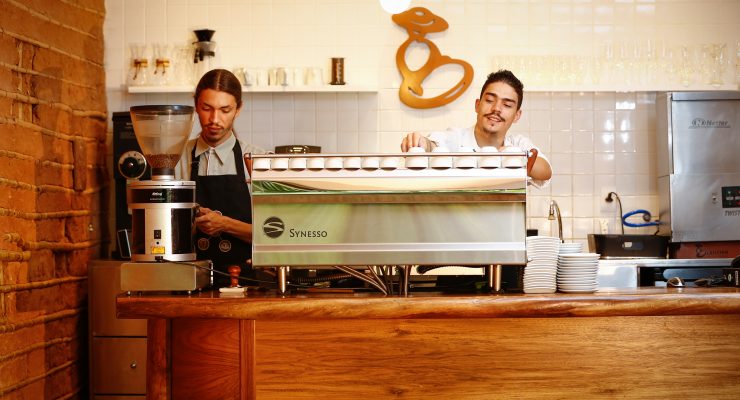
Café Cristina is an elegant yet no-frills cafe employing a farm-to-cup approach to specialty coffee. It’s named for the city the beans come from: Cristina, in the south of Minas Gerais, which is home to some of the most awarded coffees in Brazil. Co-owner Daltro Barros has a farm there where they source the majority of the coffee sold at the cafe. Pedro Lisboa, his partner, says Café Cristina was born as a coffee brand back in 2004, while the cafe itself came in 2007, aiming to showcase the beans as well as make its mark in Brasília in the specialty coffee field.
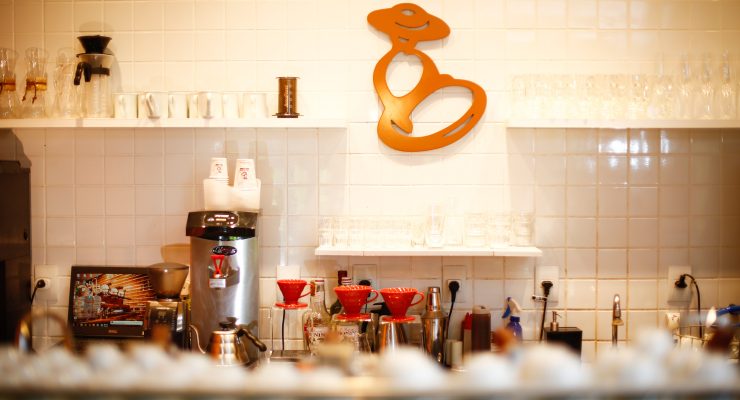
The beans are roasted at Barros’s farm, and shipped to Brasília twice a month under Lisboa’s supervision. The cafe’s baristas have been working there for years, and despite their sophisticated poise, will surprise you with their down-to-earth approach to coffee. When you order an espresso, they will usually ask what exactly you are expecting in the cup, especially in terms of volume—since a common practice in other cafes in Brasília is to serve a “longo,” around 60 milliliters of a thin, bland drink. Then they will talk up their shorter version of espresso extracted from a Synesso—the first in Brazil—and invite the customer to try that. You can also have Cristina’s espresso served at the restaurants located on the same block—which is good because the café does not offer food. Cristina has espresso-based drinks plus a V60 pour-over option, with beans sometimes sourced from Barros’s neighbors in Cristina. The cafe hits its peak of activity right after lunch and at the end of the afternoon, where many regulars will come get their caffeine fix before heading home.
Los Baristas Casa de Cafés
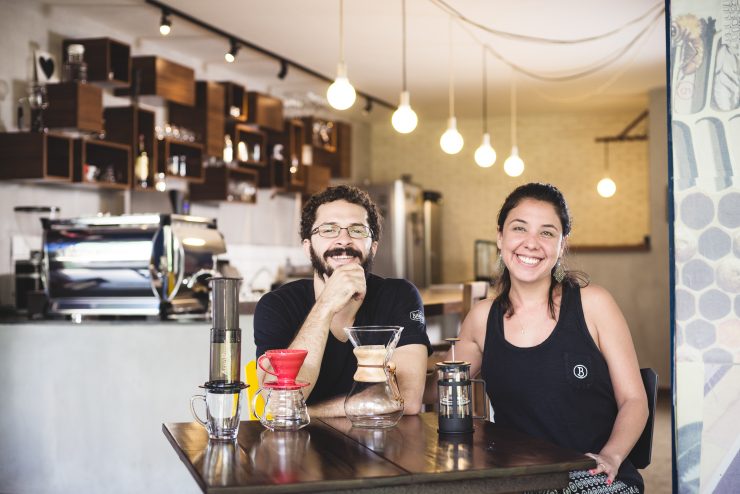
Heloisa Checheliski and Vitor Ávila both have cinema/TV backgrounds, and used to have dates in coffee shops. After way too many bad coffee experiences during their last trip to Patagonia, Argentina, they decided they would open a cafe there. The plan got a little side-tracked, though, and they instead opened one in their hometown of Brasília, on a cozy commercial block close to the University of Brasília and government offices.
The couple say they spent all their savings on a La Marzocco GB5; while waiting for it to arrive, they deepened their barista studies in São Paulo at Isabela Raposeiras Coffee Lab, and also sought out the perfect place for the cafe. Los Baristas Casa de Cafés serves a brunch-style breakfast with an assortment of artisanal sweet and savory selections, among which the bolo de milho (a sweet type of cornbread) and the soft-boiled egg (to be eaten with a spoon and paired with breadsticks) are hits.
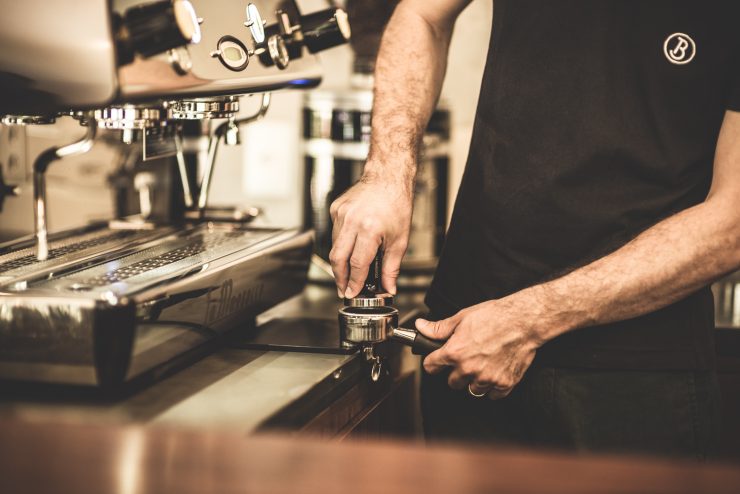
To drink, you ask? There are a number of wine options, and of course, coffee from a variety of Brazilian roasters, among them Wolff Café, Pereira Villela, and 4 Beans Coffee Co., available via several methods of extraction: AeroPress, French press, Hario V60 (the best seller), Chemex, and syphon, all of them on the counter visible to customers. Checheliski and Ávila are always at the shop, behind the machines, greeting customers and friends with a smile.
Ernesto Cafés Especiais
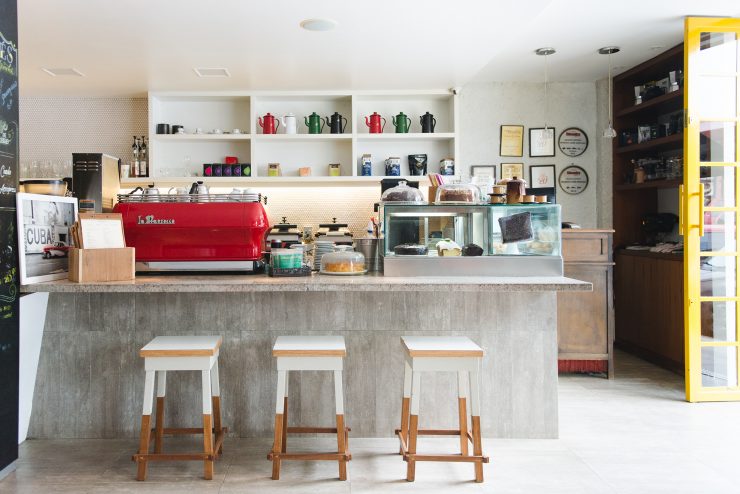
Ernesto Cafés Especiais is the only shop here that is in the South Wing, a somewhat more traditional part of Brasília. Juliana Pedro founded Ernesto in 2011, after having lived in São Paulo for years and patronizing many of that city’s cafes. Pedro says that in the early days, many customers would return their espressos or cappuccinos, with a variety of complaints: it was lukewarm, they missed the cinnamon/cocoa on top, it was too small, etc. Now Pedro can’t remember the last time there was a complaint over the coffee.
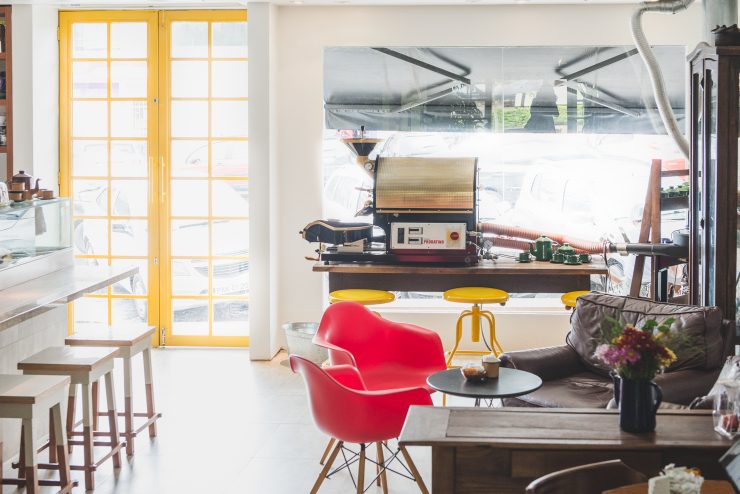
Ernesto always has two espresso options: the house blend, roasted by Wolff Café, and a guest bean (the day I visited it was from Café Terroá). They also have Chemex, Hario V60, AeroPress, and French press alternatives, each extracted in front of the client.
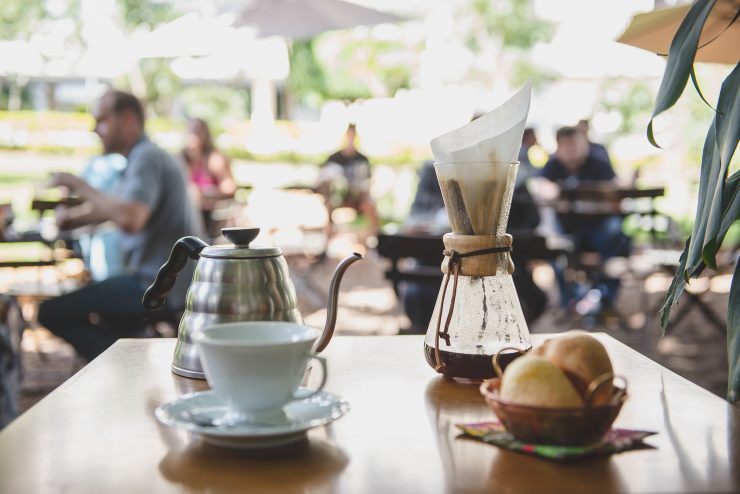
The breads here are baked in-house, and made daily from scratch. An assortment of independent books are for sale on the shop’s second floor, and there is a beautiful garden at the back (the commercial block the cafe is on connects to the residential block next to it through a green area). Ernesto is also fairly close to Brasília’s airport, so if you find yourself between flights, or just want to have a well-served breakfast and good coffee before taking off, you know where to go.
Objeto Encontrado
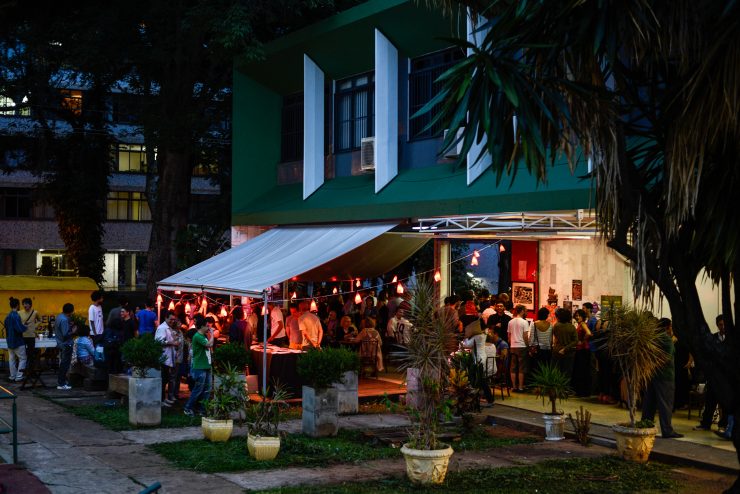
Objeto Encontrado is worth the visit just for the fact that owners Lucas Hamu, Luciana Araújo, and Lussifer Silveira managed to put together, in one place, an art gallery, a whisky bar, and a craft coffee shop. And the coffee is superb: with beans coming from an assortment of roasters (I tried a Red Catuai micro-lot from Pereira Villela beautifully extracted by Hamu), Objeto offers nicely made cappuccinos and Hario V60 or Bravilor filter-coffee options.
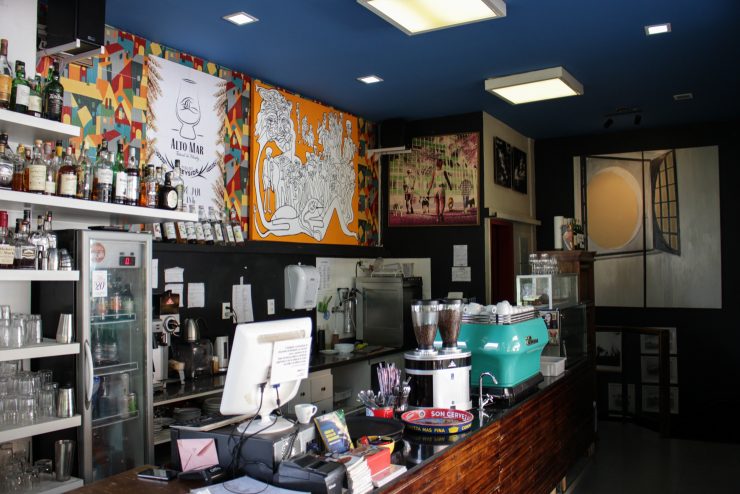
For those who are looking for something else: the whisky menu has more than 60 labels; there is a carefully curated craft-beers list; and healthy, cold-pressed juice offerings, among them one made of pumpkin, raisin, and cinnamon. Araújo carefully plots the food menu: everything is house-made and local, with plenty of vegetarian and vegan options. If you’ve got time to spare, just sit down, sip your beverage of choice, and tune out to one of Hamu’s celebrated playlists.
Clandestino Café e Música
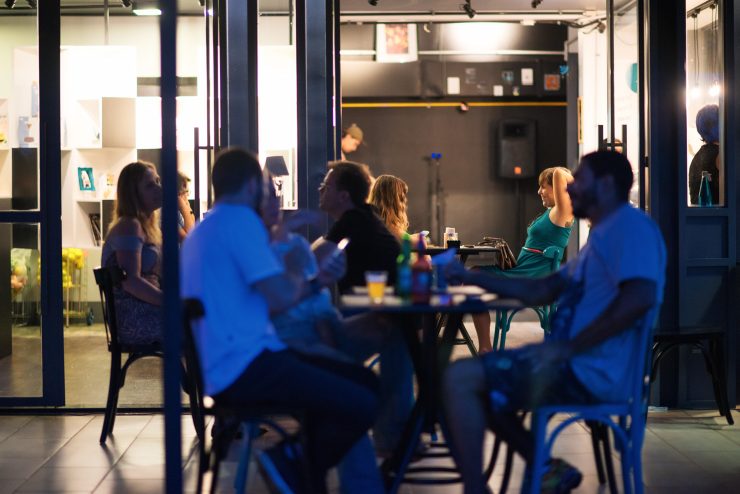
Clandestino Café e Música is conveniently situated right in front of Parque Olhos D’água, an original savanna park in the North Wing, meters away from the University of Brasília. Rodrigo Balduino, Liana David, and Carolina Balduino opened the Nordic-style coffee shop in 2014, and (if you didn’t guess from the name) promote regular live-music events that bring out much of the Brasíliense music-scene crowd.
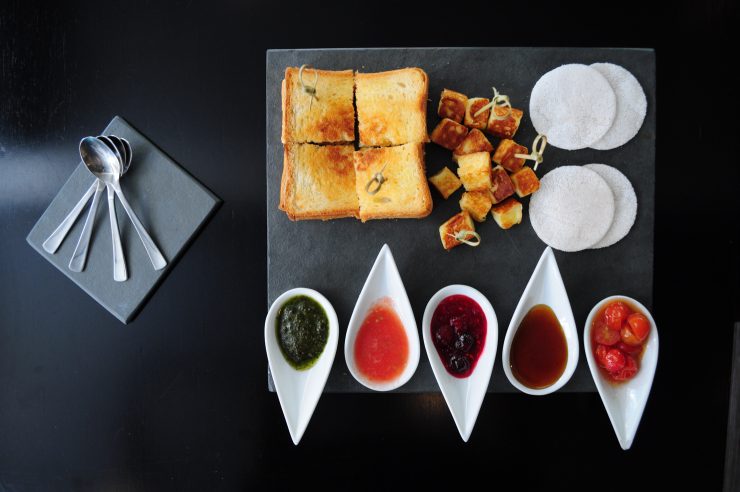
The counter with their La Marzocco FB80 is right against one of the shop’s walls, entirely accessible to customers—the idea being to inform and educate about specialty coffee. Like elsewhere in Brazil, the three owners have noticed a change in many customers’ “coffee knowledge” as they dive deeper into the house’s options of AeroPress, French press, or V60. Don’t leave without trying their pudinho—a delicious caramel flan made in-house, as are the rest of the menu options. It goes perfectly with the well-extracted espresso—Clandestino sources its beans from (among others) Isso é Café, 4 Beans, and Pereira Villela.
Juliana Ganan is a Brazilian coffee professional and journalist. Read more Juliana Ganan on Sprudge.



